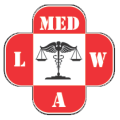[HEALTH LAW ARTICLE]
ARE ALL EMERGENCY RESPONSIBILITIES REQUIRED TO ACCEPT EMERGENCY PATIENTS IN ALL CASE?
Health and human life is one of the top issues in the medical industry. So, when an emergency occurs, do medical examination and treatment facilities have to accept patients in all cases? The following article will help you answer the above question in the most detailed way!
1. First aid for patients is the responsibility and obligation of medical examination and treatment establishments
According to Clause 1, Article 2 of the Regulation on First Aid, Active Resuscitation and Anti-poison (Issued together with Decision No. 01/2008/QD-BYT dated January 21, 2008 of the Minister of Health) clearly states: “First aid, active resuscitation and anti-poison are very important tasks, 115 emergency units, medical examination and treatment facilities must organize emergency, active resuscitation and anti-poison in a timely manner. case".
In addition, the refusal or intentional delay in giving first aid to a patient is also one of the prohibited acts according to Clause 1, Article 6 of the Law on Medical Examination and Treatment 2009. Therefore, in all emergency cases, establishments medical examination and treatment is responsible for receiving patients. However, after receiving, if it is found that the patient's condition has deteriorated, beyond their ability or inconsistent with the scope of professional activities stated in the operation license, the medical examination and treatment facility must promptly Time to refer patients to other medical examination and treatment establishments for treatment.
2. What are the penalties for not accepting emergency patients?
According to point e, point g, Clause 7, Article 38 of Decree 117/2020/ND-CP stipulating penalties for administrative violations in the medical field, acts of failing to provide first aid, first aid and treatment to patients in time or Refusing to provide medical examination and treatment to a patient (except for cases entitled to refuse medical examination and treatment as prescribed by law) may result in a fine ranging from VND 30,000,000 to VND 40,000,000. In addition, this act may also result in deprivation of the right to use the medical examination and treatment practice certificate for a period of 6 to 9 months.
With the code of professional ethics of the medical industry, receiving emergency cases in a timely and quick manner is one of the top principles. Because it is related to human life. Therefore, this responsibility is placed on all medical examination and treatment facilities in all emergencies.




